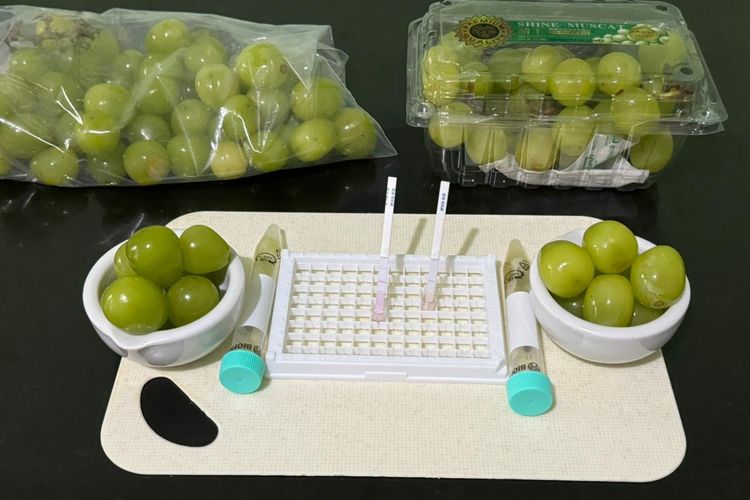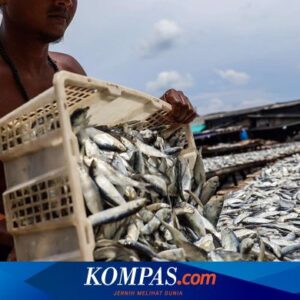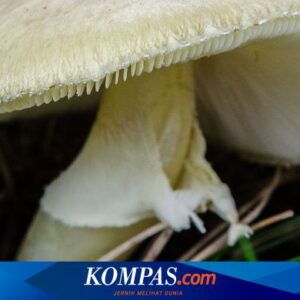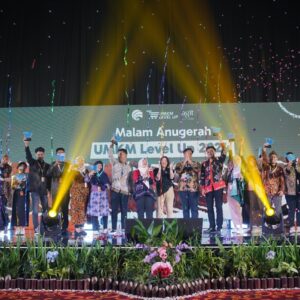KOMPAS.com – Referring to the Regulation of the Minister of Agriculture of the Republic of Indonesia (Permentan RI) Number 55 of 2018 concerning the Safety and Quality of Fresh Food of Plant Origin, the maximum limit for pesticide contamination on grapes in Indonesia is quite high.
The Indonesian Ministry of Agriculture lists 83 types of active pesticide ingredients with different maximum contamination limits.
The maximum limit for pesticide contamination on grapes in Indonesia is around 0.01-25 milligrams of pesticide contamination per kilogram of grapes.
Also read: After communicating with the Food Authorities of these 3 Countries, Bapanas Declares Shine Muscat Wine to be Safe to Consume
This number is considered high when compared to Thailand. It was recently reported that the country of the White Elephant had restricted imports of Shine Muscat grapes due to the type of pesticide and contamination limits that exceeded the maximum amount of 0.01 milligrams per kilogram of fruit.
Awang Maharijaya, Head of the Center for Tropical Horticulture Studies, Bogor Agricultural Institute (IPB), confirmed that the maximum limit for pesticide residues on grapes is indeed higher in Indonesia than Thailand.
“Because Indonesia’s climate is tropical, pests and diseases (of fruit plants) are definitely higher compared to Thailand,” said Awang.
“Perhaps the reason Indonesia determines (pesticide pollution) is quite high is because our use of pesticides is very intensive,” he continued when contacted Kompas.comWednesday (30/10/2024).
Also read:
That is why, said Awang, it is difficult to cultivate grapes organically without the help of pesticides.
The difficulty of cultivating grapes organically
Grapes may be grown organically, but they require extra care from growth to harvest.
The reason is that grape plants are ideal hosts for various plant pathogens, making them susceptible to insect infestation and plant damage.
 The National Food Agency (Bapanas) confirmed that the shine muscat grapes in circulation were safe to consume after they conducted a rapid test. The rapid test was held by Bapanas together with the agency that handles provincial food affairs as the Regional Food Safety Competent Authority (OKKPD).
The National Food Agency (Bapanas) confirmed that the shine muscat grapes in circulation were safe to consume after they conducted a rapid test. The rapid test was held by Bapanas together with the agency that handles provincial food affairs as the Regional Food Safety Competent Authority (OKKPD).“The physical integrity of grapes is very easily disturbed, causing mechanical injuries or bruising. These wounds provide an entry point for various pathogenic microorganisms, such as bacteria, which can cause post-harvest spoilage,” said Awang.
“To control the growth of these pathogenic microbes, farmers often use fungicides (pesticides),” he concluded.
The latest information, the National Food Agency (Bapanas) conducted a rapid test for pesticide residues on Shine Muscat grapes together with the Provincial Food Service as the Regional Food Safety Competent Authority (OKKPD).
Also read:
The rapid test, which was carried out in nearly 100 districts and cities in Indonesia, concluded that Shine Muscat grapes were safe to consume and that pesticide residues were still within safe limits.
“Test results rapid test carried out by OKKP shows that the Shine Muscat grapes in circulation are safe to consume. “Most of the results were negative, and only 10 percent of the samples had safe amounts of residue,” said Acting Deputy for Consumption Diversity and Food Safety Bapanas, Yusra Egayanti, in her statement, Thursday (31/10/2024).
Listen breaking news And selected news we’re right on your phone. Choose your favorite news channel to access Kompas.com WhatsApp Channel: https://www.whatsapp.com/channel/0029VaFPbedBPzjZrk13HO3D. Make sure you have installed the WhatsApp application.






